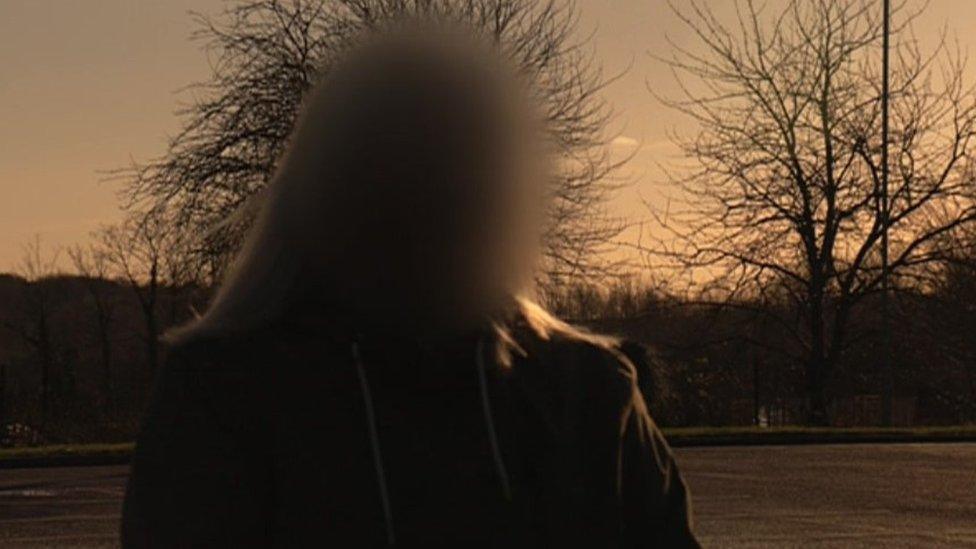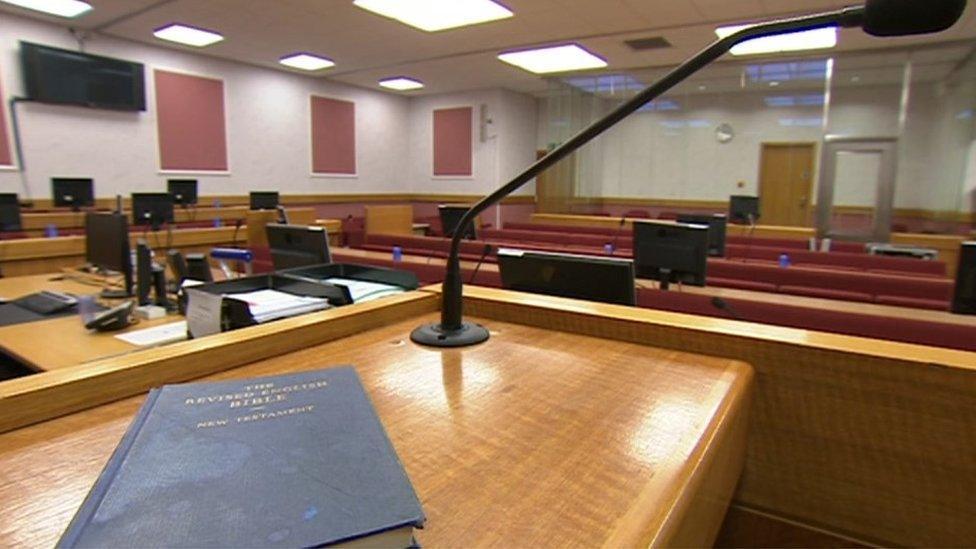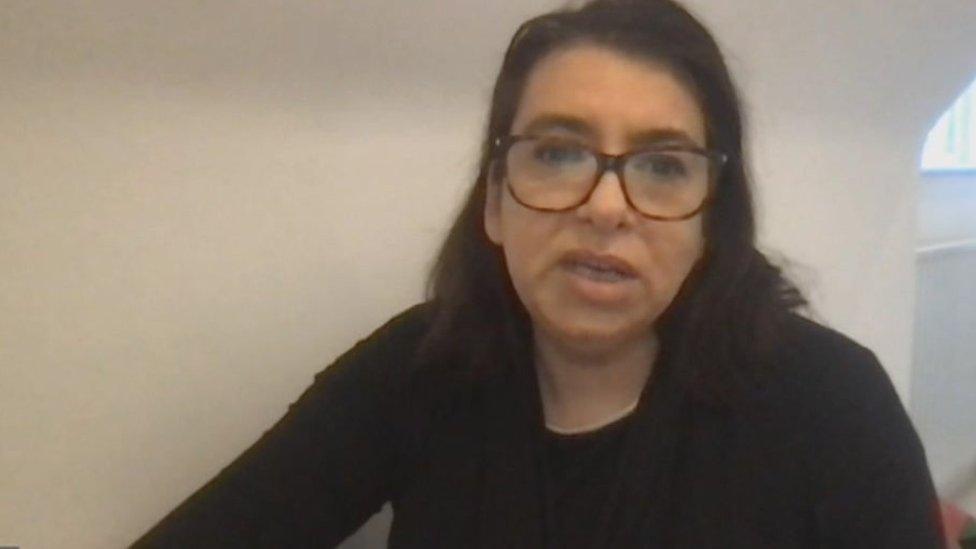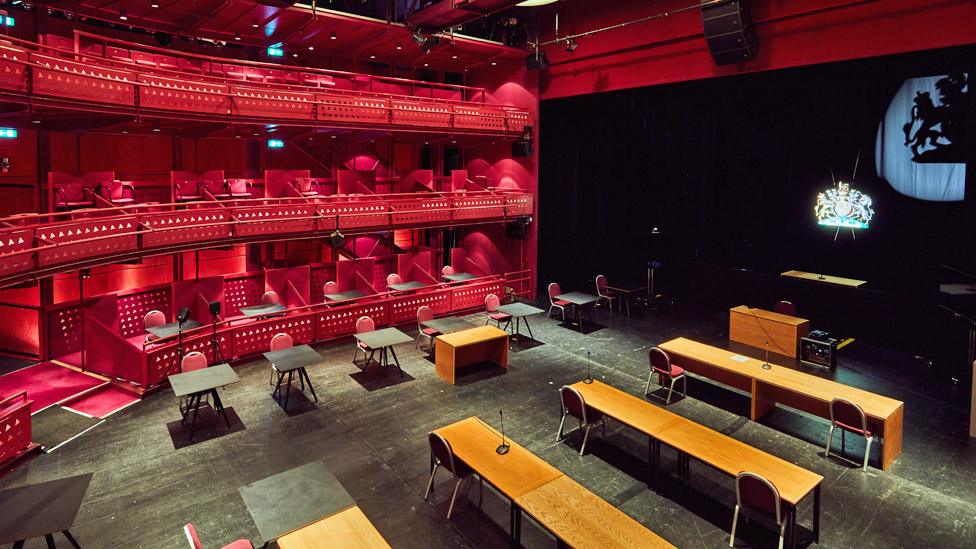Covid: Rape trial delays leave woman feeling 'forgotten'
- Published

The woman, whose identity cannot be revealed, said constant delays to her case were having an impact upon her mental health
A woman awaiting the trial of the man accused of her rape said court delays have left her feeling "forgotten".
Repeated delays to her case amid a nationwide courts backlog have massively impacted her mental health and left her feeling suicidal at times, she said.
She said she feared constant delays meant she would "never get closure".
The Ministry of Justice (MoJ) said it was investing in a range of measures and staff to boost capacity.
There are more than 53,000 outstanding crown court cases in England and Wales, according to government figures.
Some delayed cases have been scheduled for 2022.
'Frustration and heartache'
The woman, from the north of England, whose identity cannot be revealed for legal reasons, said she had "struggled massively" with anxiety and depression.
"Dealing with these cancellations I've had to change my medication to stronger doses," she said.
"I do feel angry… it's more frustration and heartache that I'm forever going to be stuck with this and never going to be able to have closure to move on with my life.
"It feels like this person is allowed to carry on their life like they've done nothing wrong and I'm being forgotten about."

Lockdown effect

There are calls to use empty cinemas and theatres as temporary court rooms
Jury trials ground to a halt at the start of the first lockdown, when people were advised to stay at home except in limited circumstances.
When they resumed, there were severe delays and numerous cancellations due to social-distancing requirements.
Last week, four criminal justice watchdogs warned that courts in England and Wales were straining under pressure from the coronavirus pandemic.
The government is being urged to open up as many empty cinemas and theatres as possible to make more crown courtrooms to help reduce the backlog.
Labour has called for juries to be cut from 12 members to seven, to stem the "gravest crisis" in the justice system since World War Two.


Kama Melly QC said victims would have to give evidence years after reporting the crime
In Yorkshire, there were 3,768 crown court cases outstanding as of September 2020, a 33% rise on the 933 cases at the same point in 2019.
Kama Melly QC, of Park Square Barristers, Leeds, said the backlog was the "most critical and serious" that she had seen.
"We will see cases only being brought to justice years and years after they were reported to police," she said.
Ms Melly said all aspects of the criminal justice system were affected, with both victims and defendants left waiting.
Criminal Bar Association chair James Mullholland QC said the group was "begging the government to act."
"Use civic centres, use cinemas, use theatres, use all the buildings that we see empty all around to hear jury trials," he said.
The MoJ said it had opened 19 Nightingale courts in England and Wales, with 11 in the North of England.
It said it was "investing £110m on a range of measures to boost capacity, including recruiting 1,600 new staff, to ensure swifter justice for victims".

Follow BBC Yorkshire on Facebook, external, Twitter, external and Instagram, external. Send your story ideas to yorkslincs.news@bbc.co.uk or send video here.
Related topics
- Published21 September 2020

- Published17 September 2020
